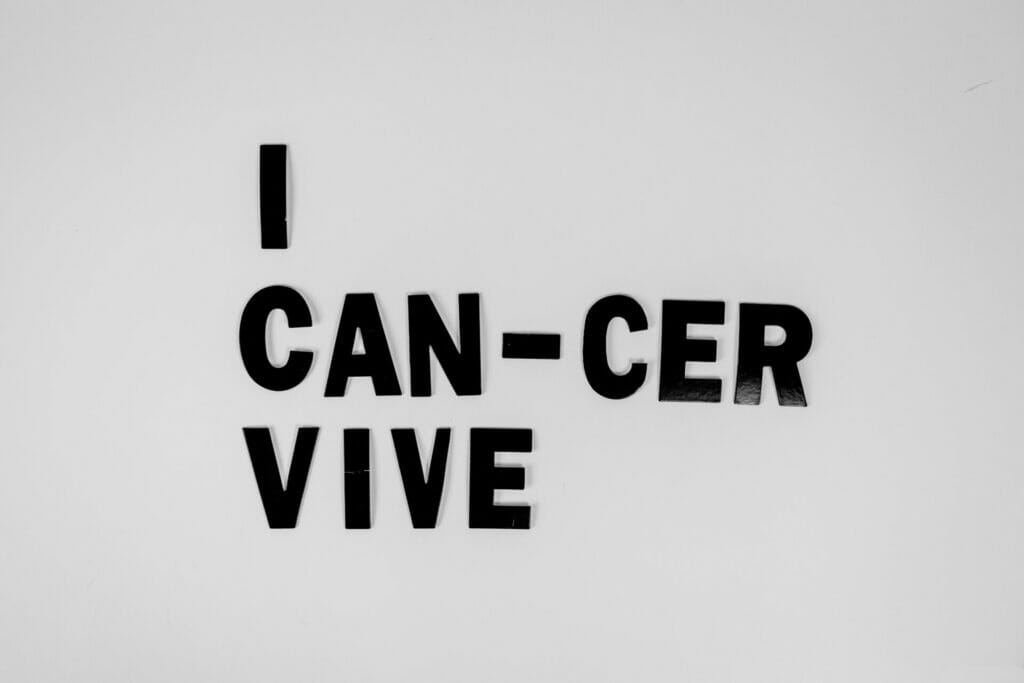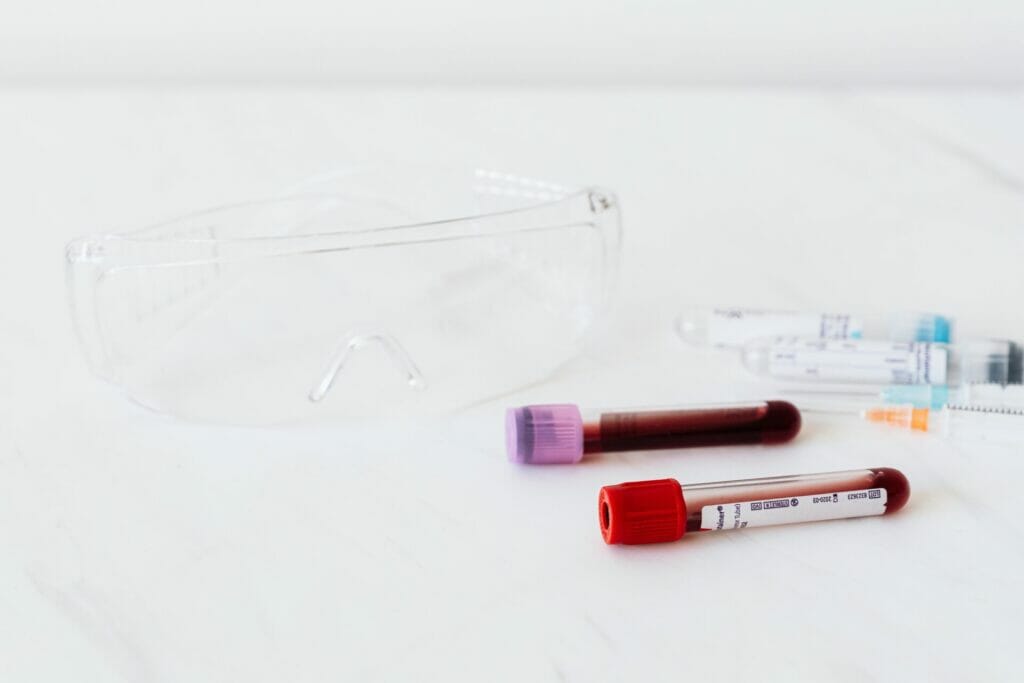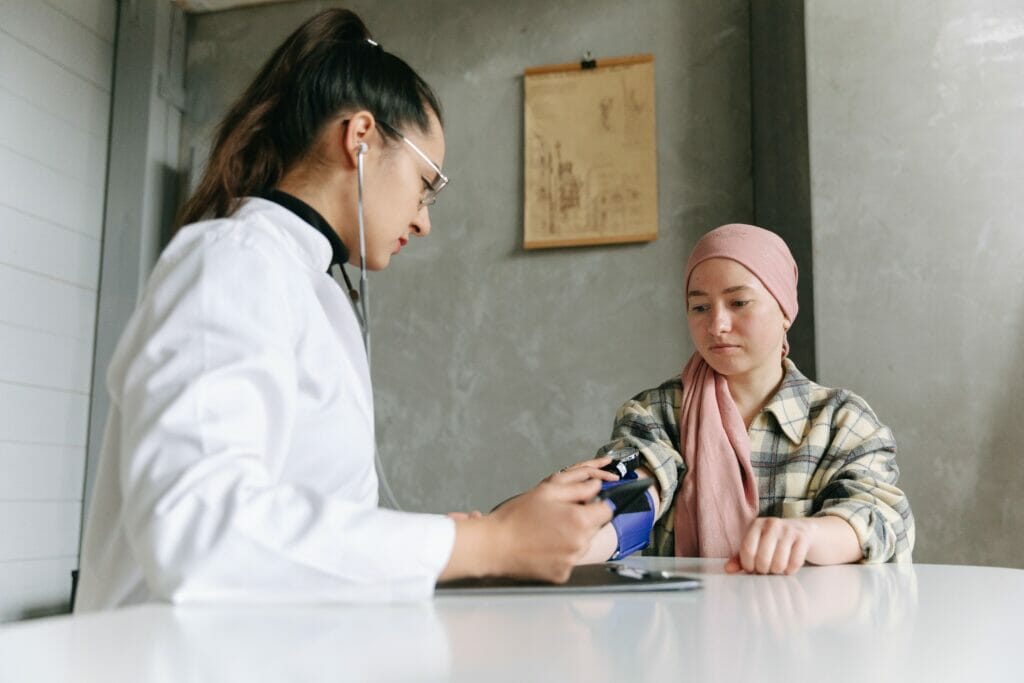Blood cancer is a disease that every one is sooo afraid of. It is important to know the symptoms of blood cancer in female, male and even children so as to know when to see your doctor.
Blood cancer is a type of cancer in which abnormal blood cells reproduce rapidly and begin interfering with the body’s usual operations. Blood cancer is a type of cancer that begins in the bone marrow, where red blood cells, white blood cells, and platelets are produced. There are three primary types of blood cancers: leukemia, lymphoma, and myeloma. More than 5 million people are currently diagnosed with a blood cancer; about 10 per cent of all new cancer diagnoses every year are hematological, or blood-related.
Blood cancers have been a major health risk. In recent years, more than 1000,000 persons have died annually from leukemia, lymphoma, myeloma, and less common forms of the disease. If you or a loved one is exhibiting blood-cancer symptoms, it is adviced to see your doctor or the oncologist.
Symptoms of blood cancer vary depending on the type of blood cancer, whether it’s leukaemia, lymphoma, myeloma, MDS, MPN or any other blood cancer.
Types Of Blood Cancer
There are different types of blood cancer, but the most common types are: leukemia, lymphoma and myeloma.
1. Leukemia
Leukemia is a type of cancer that affects the white blood cells, which your body produces to fight disease. This type of blood cancer is caused by the rapid production of abnormal blood cells in the bone marrow. The bone marrow’s ability to produce the red blood cells and platelet is affected by these abnormal blood cells. The cancer weakens the immune system and also limits the creation of red blood cells and platelets.
Leukemia cells are mostly found in the bone marrow, but it can also spread to the liver, lymph nodes, and spleen. There are both acute (rapidly developing) and chronic (or more slowly developing) versions of leukemia. It tends to affect children under age 15 and adults older than age 55.
2. Lymphoma
Lymphoma is a type of blood cancer that attacks the lymphatic sysem, which is another important part of your immune system. This cancer cell affects the lymphatic system that is responsible for removal of excess liquid from the body. Healthy cells, called lymphocytes, are replaced by abnormal lymphoma cells. Lymphocyte is a type of white blood cell that fights infection.
The build-up of cancerous cells in the lymph nodes reduces your resistance to infection and disease. The widespread distribution of lymphatic tissue means that lymphoma cells can be found just about anywhere in the body. There are two main types of lymphoma: Hodgkin’s and Non-Hodgkin’s. Hodgkin targets mostly teenagers and young adults between the ages of 15 and 35, while non Hodgkin is more common in adults older than age 60.
3. Myeloma
Plasma cells are white blood cells that are responsible for the production of disease-fighting antibodies in the body. Myeloma is a type of blood cancer that affects the plasma cells. The spread of abnormal plasma cells lowers the production of antibody, while increasing susceptibility to disease which results in a weak immune system. Myelomas forms tumors in the bone marrow. The disease is sometimes classified by the number of infected sites, either single or multiple. Men are more likely to develop myelomas than women, and African-Americans have a greater risk of this condition than European-Americans.
Symptoms Of Blood Cancer
Blood cancer is a type of disease that affects the blood, bone marrow, or lymphatic system. Common symptoms of blood cancer in female and male include:
- Loss of appetite
- Flu-like fevers and chills
- Anorexia
- Unexplained weight loss
- Bleeding gums
- Shortness of breath
- Delirium and confusion
- Excessive or easy bruising
- Frequent vomiting sensations
- Recurrent infections
- Sweating of body during the night
- Weakness, fatigue, and malaise
- Lymph node (gland) enlargement
- Abdominal pain, bone pain and back pain
- Occurrence of fine rashes on dark spots
- Headaches along with visual difficulties
- Minimal body strain results in bone fractures
- Decreased urination and difficulty while urinating
- Lumps or abdominal distension due to enlarged abdominal organs
- Abnormal bleeding in gums nose and cuts, which will lead to platelet reduction
There are some differences among symptoms, depending on the type of cancer. Additionally, women and children may experience some symptoms that are unique to them. Symptoms of blood cancer depending on the type are:
Read Also:14 High Blood Pressure Food to Avoid
Symptoms Of Leukemia Blood Cancer
Symptoms of leukemia depend on the type of leukemia, but common symptoms are:
- Chronic fatigue that does not improve even after rest
- Bruises easily
- Blood clotting issues
- Frequent infections and high fevers
- Unexplained weight loss
- Swollen lymph nodes (in the neck, armpits, and groin)
In children, common Leukemia symptoms are:
- Anemia
- Bruising and bleeding
- Getting infections easily
- Weight loss
- Swollen lymph nodes (your child’s neck may look swollen)
- Belly pain (specifically if the liver or spleen are swollen)
- Bone pain (you may notice your child limping or avoiding walking)
- A general feeling of being unwell
- Night sweats

Symptoms Of Lymphoma Blood Cancer
- Lumps (painless swollen glands in the neck, collar bone, armpit, or groin regions)
- Some of the swollen lymph nodes can press on organs and cause pain in your chest or belly, and trigger coughing and breathlessness
- Fever
- Unexpected weight loss
- Night sweats that soak through your clothes and sheets
Symptoms Of Myeloma Blood Cancer
- Nausea
- Fatigue and exhaustion
- Bone pain
- Breathlessness
Symptoms Of Myelodysplastic Syndromes (MDS)
- Anemia
- Bruising and bleeding issues
- Infections
Symptoms Of Myeloproliferative neoplasms (MPN)
There are 3 types of myeloproliferative neoplasms. They are polycythemia vera (PV), essential thrombocythemia (ET), and myelofibrosis (MF).
- PV: Symptoms can include headache, blurred vision, skin changes. Many people experience no symptoms and are often diagnosed only after a blood test.
- ET: Often people do not experience symptoms. However, older people with low platelet counts can experience symptoms of persistent or repeated headaches, disturbed vision, dizziness or ringing in the ears, bruising and bleeding easily, erythromelalgia, fingers or toes turning blue or feeling cold.
- MF: Symptoms may include breathlessness, difficulties fighting infections, and unusual bleeding and bruising. Additionally, you may experience fatigue, chest pain, headaches, tinnitus, belly pain, night sweats, fever, and weight loss.
Symptoms Of Blood Cancer In Female
Men and women exhibit similar symptoms with blood cancer, there are sespecific symptoms and that are targeted at women. One of the symptoms women can have with blood cancer is heavier or irregular menstrual flows. Your period may be much heavier, or you may notice bleeding in between cycles that is usually more than just normal spotting that can happen.
Additionally, symptoms of blood cancer can look very similar to symptoms of menopause or some symptoms of pregnancy, and therefore can be easily missed by you and your doctor. It is also important to note that women who have MPN’s need to consult with their doctor before using contraceptives due to an increased risk of blood clots. Please consult with your doctor if you are experiencing any symptoms, or if you have an MPN and are needing to try a contraceptive.
Causes Of Blood Cancer
Factors that are associated with an increased risk of blood cancer include:
- Aging
- Certain infections
- Weak immune system
- Smoking or tobacco use
- Family history of leukemia
- Blood disorders such as myelodysplastic syndrome
- Previous cancer treatment
- Exposure to radiation
- Exposure to certain chemicals like benzene and other petrochemicals
- Genetic factors such as those with Down’s syndrome have a higher risk of developing leukemia.
- Viruses such as HIV (Human Immunodeficiency Virus) & HTLV-1 (Human T-lymphotropic virus)

How To Treat Blood Cancer
The primary objective of blood cancer treatment is the complete eradication of cancer. Several therapies are provided by blood cancer hospital in India for this disease. A few of them are as follows-
- Biological therapy to kill cancers
- Chemotherapy
- Stem-cell transplantation: Radiation and chemotherapy destroy good cells as well as bad ones. This can be counteracted by injecting the patient with stem cells, often acquired from a cancer-free donor. These stem cells will encourage the reproduction of healthy new blood cells.
- Bone Marrow Transplantation: This is typically a procedure to replace damaged or destroyed bone marrow with healthy bone marrow stem cells. Max Healthcare’s HEPA (High-Efficiency Particulate Air) filtered Bone Marrow Transplant unit offers stem cell transplantation for both benign and malignant conditions in children and adults.
- Radiation Therapy
- The Department of Haemato-oncology is committed to improving the outlook for patients with myeloma by developing novel therapeutic approaches based on a sound knowledge of the biology of the disease.
- A highly specialized team comprising of Haemato-oncologists & radiation oncologists provide treatment for a variety of cancers like lymphomas, leukemia and multiple myelomas.
Blood cancer treatment is cost in india is affordable keeping in mind the quality medical care facilities, world-class technologies that max healthcare provides to its patients. Max Hospital is one of the best blood cancer hospital in india that have the best cancer doctors who specializes in treating blood cancer with surgery, chemotherapy, bone marrow transplant, biological therapy and haemato oncology.

Read Also:Symptoms Of Leukemia In Adults
Conclusion
There are numerous Symptoms of blood cancer in female, male and children. It is very important to be diagnosed early enough.If blood cancer or any type of cancer is dictacted early enough, it becomes much easier to get treated and be cured totaly. If you notice any of this symptoms, it is necessary to talk to your doctor.



